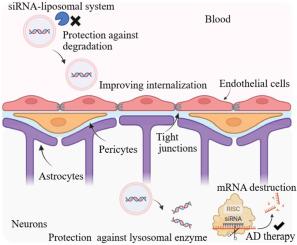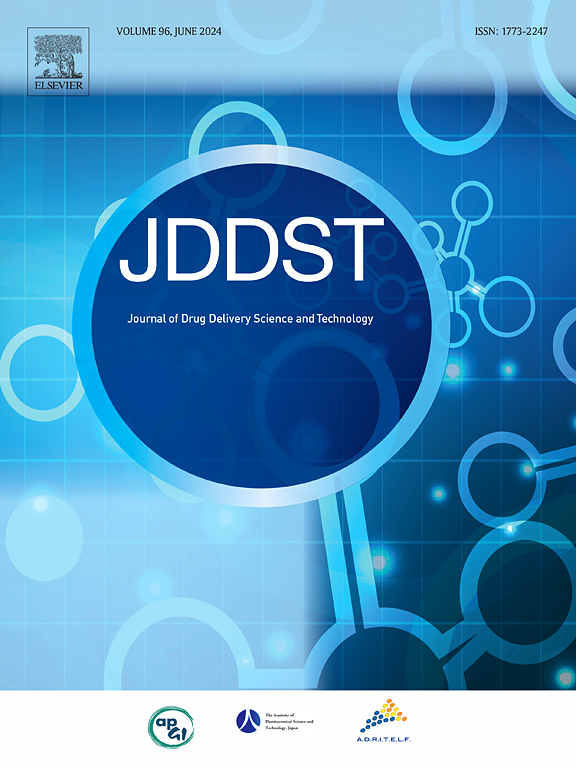Alzheimer's disease: Current concept and a new hope with siRNA-liposomal system
IF 4.5
3区 医学
Q1 PHARMACOLOGY & PHARMACY
Journal of Drug Delivery Science and Technology
Pub Date : 2024-11-13
DOI:10.1016/j.jddst.2024.106409
引用次数: 0
Abstract
Alzheimer's disease (AD) is a brain disorder that causes dementia and affects millions of people worldwide. Currently, the most effective pharmacological treatments for AD focus on alleviating and temporarily reducing symptoms rather than addressing the underlying mechanisms or achieving a complete cure. Advances in investigating the responsible genes and non-coding sequences at the molecular level of AD pathophysiology have led to numerous studies exploring small interfering RNA (siRNA)-based treatment. However, many challenges hinder the translation of siRNA into clinical trials, such as their in vivo poor stability and low cellular availability due to the presence of the blood-brain barrier (BBB). One strategy to bypass these limitations is the entrapment of siRNA within a liposomal system. Liposomes (LPs) are the most often utilized lipid-based nanovehicles due to their safe profile and ability to overcome the BBB through several mechanisms such as endocytosis, fusion, lipid exchange, and paracellular transport. This work aims to highlight the use of siRNA-loaded liposomal systems in targeting AD. It explores AD's pathophysiology and causes, the benefits of siRNA in treating this neurological disorder, and how LPs can advance this strategy and address current challenges.

阿尔茨海默病:siRNA 脂质体系统的现有概念和新希望
阿尔茨海默病(AD)是一种导致痴呆的脑部疾病,影响着全球数百万人。目前,治疗阿尔茨海默病最有效的药物疗法主要是缓解和暂时减轻症状,而不是解决其根本机制或实现彻底治愈。在研究多发性硬化症病理生理学分子水平的致病基因和非编码序列方面取得的进展促使许多研究探索基于小干扰 RNA(siRNA)的治疗方法。然而,将 siRNA 转化为临床试验还面临许多挑战,例如由于血脑屏障(BBB)的存在,siRNA 在体内稳定性差,细胞可用性低。绕过这些限制的一种策略是将 siRNA 包裹在脂质体系统中。脂质体(LPs)是最常用的脂基纳米颗粒,因为它们安全可靠,并能通过多种机制(如内吞、融合、脂质交换和细胞旁转运)克服 BBB。这项研究旨在强调 siRNA 脂质体系统在治疗 AD 方面的应用。它探讨了AD的病理生理学和病因、siRNA在治疗这种神经系统疾病中的益处,以及脂质体如何推进这一策略并应对当前的挑战。
本文章由计算机程序翻译,如有差异,请以英文原文为准。
求助全文
约1分钟内获得全文
求助全文
来源期刊
CiteScore
8.00
自引率
8.00%
发文量
879
审稿时长
94 days
期刊介绍:
The Journal of Drug Delivery Science and Technology is an international journal devoted to drug delivery and pharmaceutical technology. The journal covers all innovative aspects of all pharmaceutical dosage forms and the most advanced research on controlled release, bioavailability and drug absorption, nanomedicines, gene delivery, tissue engineering, etc. Hot topics, related to manufacturing processes and quality control, are also welcomed.

 求助内容:
求助内容: 应助结果提醒方式:
应助结果提醒方式:


